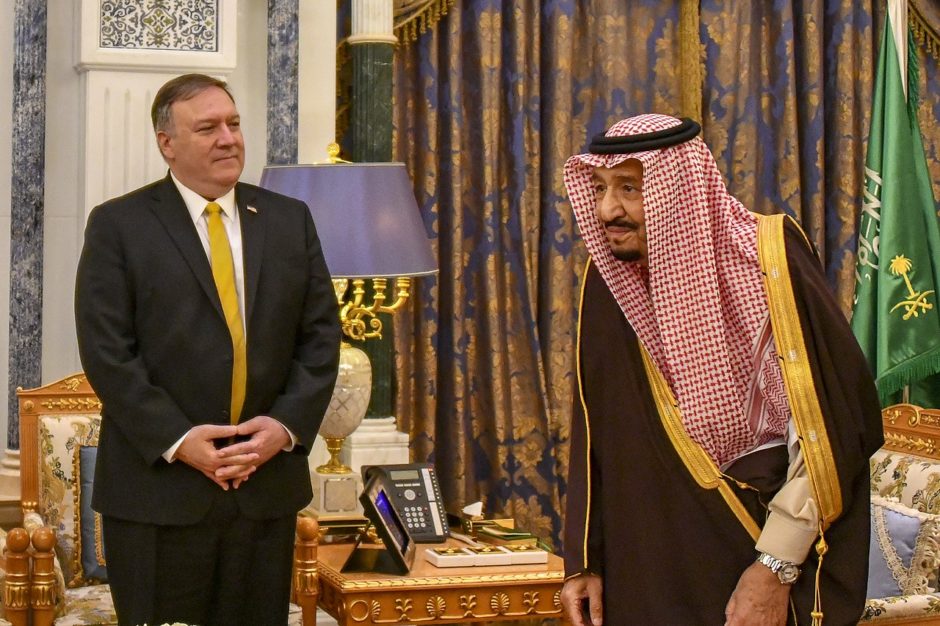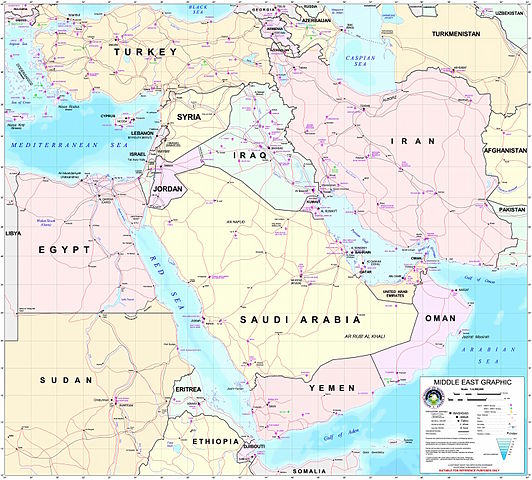
Prime Minister Benjamin Netanyahu thinks Israel can normalize relations with the Arab world before the Palestinian problem is fully resolved. Animated by this belief, he and his cabinet ministers have reached out to Muslim-majority countries in the Middle East — and in Africa — in a bid to turn this concept into reality.
Netanyahu’s facile assumption is erroneous. As the old saying goes, he’s putting the cart before the horse. But say this for Netanyahu: he has certainly been trying to prove his point.
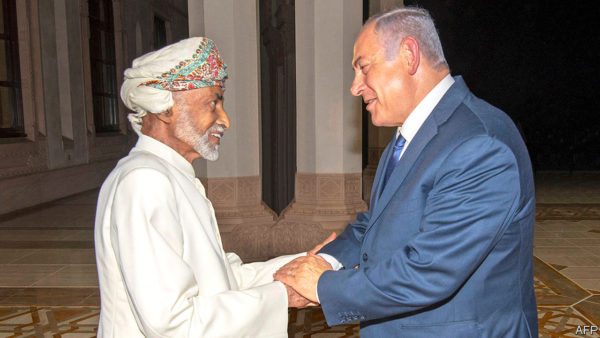
Last October, Netanyahu created shock waves in the Middle East when he visited Oman to confer with its ruler, Sultan Qaboos bin Said, thereby becoming the first Israeli leader in 22 years to visit that Arab nation. Less than two months later, he announced that Israeli commercial aircraft had received permission to fly over the airspace of Oman and Sudan.
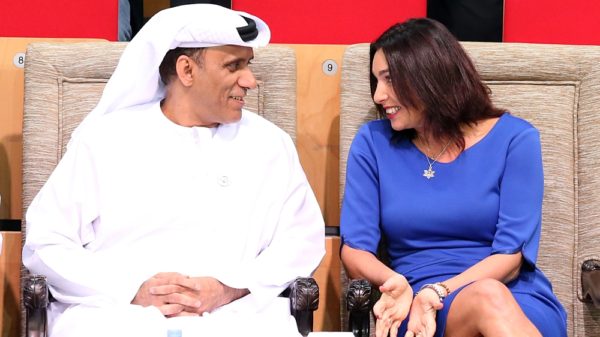
Culture and Sports Minister Miri Regev, meanwhile, paid a state visit to the United Arab Emirates in October to watch the Israeli judoka team compete at the Abu Dhabi Grand Slam competition.
In early January, Israel announced that three unofficial Iraqi delegations had arrived in Israel in 2018. Later that month, Netanyahu flew to Chad to renew Israel’s diplomatic relations with that predominately Muslim African nation after a break of almost 50 years.
Earlier this month, in another sign that a political thaw may be under way in Israel’s relations with the Muslim world, a group of Kuwaiti businessmen spent several days in Israel, touring religious, educational and cultural sites.
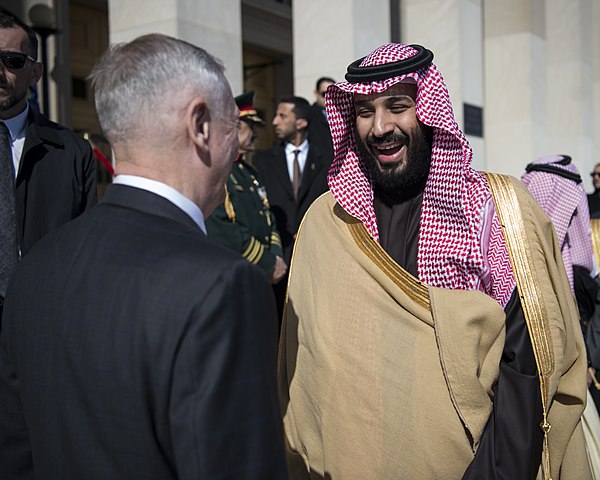
Above all, Israel has courted Saudi Arabia — the seat of Islam — since Crown Prince Mohammed bin Salman, the son of King Salman, was named heir to the throne. Worried by the rise and ambitions of its bitter regional rival, Iran, Saudi Arabia has reciprocated Israel’s advances to some extent. Last year, the Saudis allowed Air India to fly to and from Israel over their airspace after the former Israeli chief of staff, General Gadi Eisenkot, said Israel was willing to share military intelligence with moderate Arab states to contain Iran.
“This showed that our relations with the wealthiest country in the Arab world are changing,” said Netanyahu in a reference to Air India’s new route to and from Israel.
Netanyahu condemned the murder of Saudi dissident journalist Jamal Khashoggi in the Saudi consulate in Istanbul last October, calling its a “horrendous” crime. But in an effort to please the Saudis, he reportedly urged U.S. President Donald Trump to continue supporting Crown Prince Mohammed bin Salman, who was accused of masterminding his grisly death.
Netanyahu was thus one of the very few Western leaders to express public support for the Saudi crown prince. Arguing that he is a strategic partner in the Western alliance against Iranian encroachments in the Middle East, Netanyahu said Saudi Arabia’s stability was of the utmost importance in the containment of Iran.
Two months ago, an Israeli television station reported that Netanyahu hopes to formalize ties with Saudi Arabia before the general election on April 9.
If true, this is an extremely far-fetched proposition.
Saudi Arabia is still very far from officially recognizing or establishing diplomatic relations with Israel. Example: Last December, for the second consecutive year, the Saudis refused to let Israeli chess players participate in the World Blitz & Rapid Championships in Riyadh, forcing the International Federation of Chess to move the event to Russia.
According to an Israeli Foreign Ministry paper released recently, Saudi Arabia will neither normalize ties with Israel, nor endorse a peace plan to be submitted by the United States after the Israeli election, unless Israel makes significant concessions to the Palestinians.
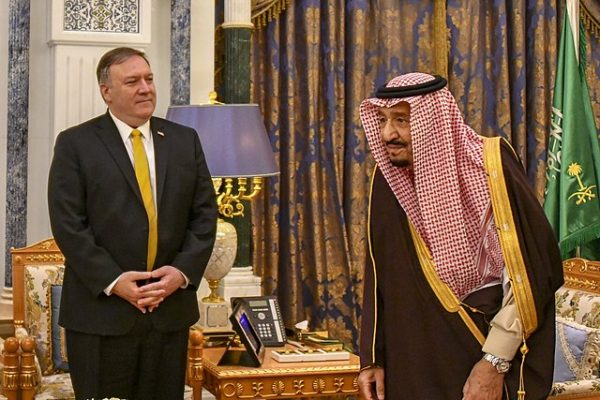
King Salman reportedly told U.S. Secretary of State Mike Pompeo last month that he would not support the Trump administration’s peace proposal unless Israel accepts a two-state solution and recognizes East Jerusalem as the capital of a Palestinian state. The king’s demand was in keeping with the Arab League peace initiative, which Saudi Arabia has promoted since 2002. It calls for Arab recognition of, and normalization with, Israel in exchange for a full Israeli withdrawal from the occupied areas, the creation of a Palestinian state, and a mutually acceptable solution of the Palestinian refugee problem.
Israel has accepted only parts of the plan, and to this day, Israel’s position remains exactly the same as it was 17 years ago.
That being the case, Netanyahu deludes himself by thinking that the Arab world in general and Saudi Arabia in particular will be receptive to normalizing relations with Israel before Israel’s dispute with the Palestinians is completely settled.
In short, Netanyahu should put the horse before the cart.
